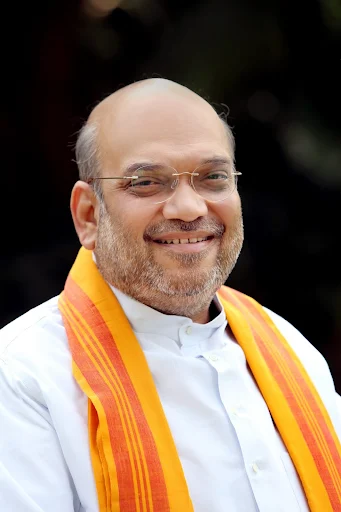In India, 4 Years after Bill passed, Citizenship Law - Citizenship Amendment Act (CAA) Becomes Reality.
4 Years After Bill Passed, Citizenship Law CAA Becomes Reality
Bengal Chief Minister Mamata Banerjee, who has long been one of the CAA's fiercest and most vocal critics, has said her government will oppose "anything that discriminates (against) people".
The Government on Monday issued a notification for implementation of the contentious Citizenship Amendment Act. The CAA - which makes religion, for the first time, a test of citizenship - was cleared by Parliament in December 2019 amid violent protests, in which over 100 people died, and fierce resistance from opposition politicians and non-BJP states.
Now that the notification is issued, the government can grant citizenship to non-Muslim migrants - from Bangladesh, Pakistan and Afghanistan - who came to India before 2015.
Implementation of the Citizenship Act - a major campaign platform for the ruling BJP in the 2019 general election and various state polls - comes just weeks before the 2024 Lok Sabha poll, in which Prime Minister Narendra Modi's party will bid for a third consecutive term.
And it comes less than a month after Home Minister Amit Shah stressed the CAA will "definitely be notified". "CAA is an act of the country... it will definitely be notified. CAA will come into effect before the election (and) nobody should be confused about this."
Mr Amit Shah also sought to play down fears the CAA, and the equally contentious NRC, or National Register of Citizens, will be combined to target religious minorities.
Bengal Chief Minister Mamata Banerjee, who has long been one of the CAA's fiercest and most vocal critics, has hit out almost immediately, telling reporters at a hastily-convened presser that her government will oppose "anything that discriminates (against) people".
The Trinamool boss also pointed out the CAA, the NRC, and the NPR, or National Population Register, were sensitive topics in Bengal and the northeast - in parts of which the CAA has been exempted by the centre - and that she does not want unrest before the election.
Earlier she accused the BJP of raking up the CAA issue at this time for votes. "With elections approaching, BJP has again raked up CAA issue to reap political benefits. But let me make it clear, as long as I am alive, I will not allow it in Bengal," she said.
Chief Minister Mamata Banerjee isn't the only opposition politician to fight against the CAA.
Chief Minister Mamata Banerjee's Tamil Nadu counterpart, MK Stalin, was similarly emphatic. Accusing the BJP government of going "against communal harmony", the DMK boss too vowed he would not implement the law.
Other states - like Kerala and Punjab - and others then ruled by the Congress (and now by the BJP) - such as Rajasthan and Chhattisgarh - also opposed the CAA and passed resolutions. In fact, the Bengal and Kerala governments also stopped all NPR, or National Population Register, and NRC work.
In Telangana, the then-ruling Bharat Rashtra Samithi of ex-Chief Minister K Chandrashekar Rao also passed resolutions against all three and urged the government to "remove all references to any religion, or to any foreign country" in view of fears expressed by lakhs across the country.
The Madhya Pradesh government - then also ruled by the Congress - also passed a resolution, and, significantly, several BJP leaders and lawmakers from the state also criticised the law.
The Government has said the Citizenship Amendment Act will help minorities from Muslim-dominated countries get citizenship if they fled due to religious persecution. However, critics say it is designed to discriminate against Muslims and violates secular principles of the Constitution.

Comments
Post a Comment